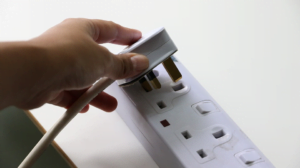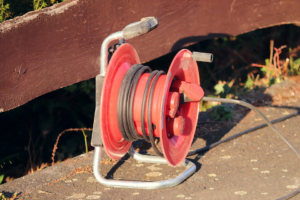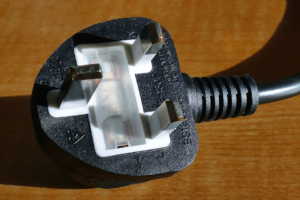
https://pixabay.com/photos/plug-socket-electric-electricity-1821536/
Electrical cords are some of the must-have items both at home and at the office. Regardless of the type of job you do, you will want to extend the power source at some point. Sometimes, you need an electric cord to provide additional power outlet points to power more than one device. Although their use may be temporal, you cannot rule the power cords out of your accessory collections.
One thing to remember is that not all power cords are the same. Manufacturers have various standards of cords to meet unique job requirements and location of use. You should know what you need to make a long-term investment and avoid replacements within a short period.
Follow these seven guide tips for buying an extension cord so that you can make the right purchase to suit your needs.
1. Choose Cord According to Work Environment
Do you intend to use your new power cord in the house, at a workshop, or in a simple office setup? Various working conditions require unique cable standards to avoid electric hazards. For instance, if you work outdoors, you need a water-resistant extension cord.
The electrical cords meant for outdoor use also feature cables that work efficiently in warm and cold conditions. These cables have heavy jackets that protect them from rough handling on the ground. You cannot use an indoor cable for outdoor activities.
Read More: Growth Strategies for Small Business

https://pixabay.com/photos/cable-reel-electrical-wires-cable-6159639/
Be wary of power strips with labels saying that you can use them outdoors from one end and indoors on the other. Such cables are a compromise to your working needs. If you are not sure, buy cords suitable for general purpose use. These cables can work well both indoors and outdoors.
2. Cable Length
Sometimes, you may need to extend your power outlet to your working desk so that you can switch positions when working. Working in a workshop or outdoors also means that you need an electric cable that can move around to facilitate power accessibility at various points.
It might not be easy to determine a specific size of cable you need. However, it can be stressful to buy a cord and realize that it is too short for your needs. Joining multiple short electrical wires will make your work inefficient and risky. You will be safer buying a longer cord to meet and exceed your needs. You never know when you will need the extension to be longer.
Read More: Importance of Increasing the User Experience
3. Power Rating
While outdoor power cords can handle heavy amounts of power and withstand extreme conditions, you may not need to buy one if you work indoors. The indoor-use electrical cords are durable and sustainable as long as you protect them from knocking and dragging around the room. However, not all indoor cables can handle all machines, devices, or appliances.
Some indoor electrical cords can handle low-power appliances like mobile phone adapters and desk lighting systems. Indoor systems that require high power input would require standard cables that match the power rating on the device. You will be safer buying one that can withstand more energy flow.
Read More: 5 Best Social Media Marketing Hacks
4. The Number of Appliances You Intend to Use
Although some electric appliances draw a low amount of energy, using them concurrently will require more power flow through your extension cords. Get a power cord that can handle the total amperage of the devices you want to use.
Make sure that the cord can sustain more amps or watts than the calculated total. Lower amperage extension cords cannot support the electrical needs, and they can burn up and set your home on fire.
Read More: The Impact of Visual Search on SEO
5. Gauge of the Cable

https://pixabay.com/photos/extension-cord-tool-work-work-764787/
Sometimes, you may find electrical cords lacking current or power specifications. The most common standard of labeling cable strength is by gauge. In electrical terms, a lower gauge number denotes a thicker wire. The thickest cable is 10 gauge, while the smallest is 16.
Thick wires can withstand more current flow and sustain the energy over a long distance. When choosing cables for more devices and long connection points, you want to settle for a lower gauge number for high current flow and low resistance.
6. Type of Connectors and Plugs

https://pixabay.com/photos/electrical-plug-power-electric-1138056/
Electrical cords for single-device use connect your system to the source of power directly. Buy one that is ready to plug into the machine and the power outlet on your wall. Therefore, you need to determine the plug you need and the connector type on your device.
For instance, cords used for desktop PCs and those that connect laptop adapters look the same. However, their connectors are different, and you cannot interchange them. Also, go for a three-prong plug if your power outlet can accommodate it. The size of the plug also matters.
7. Power Adapter Polarity
Are you trying to find the most appropriate power adapter for your gadget? Your appliance may have a power cord with an integrated adapter to convert the electric input from AC to DC. Such adapters have specific rules to follow, and one of them is the device polarity.
You should make sure that the connector terminals match those on your system before buying such cables. It is ideal to contact your appliance manufacturer for an original cable supply.
Summary
Electrical cords make it easy to work with your gadgets with a constant power supply. Choosing the correct cable for your machine ensures that your system is safe as well as your home or office. You need a better understanding of your appliances and the working conditions to make the right choice on the cable you need.

